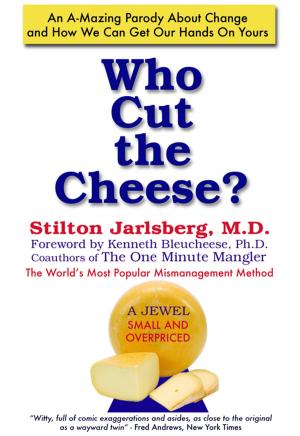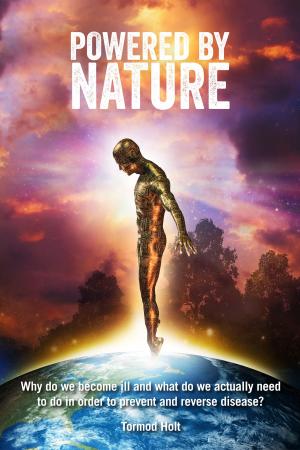Dirty Science
How Unscientific Methods Are Blocking Our Cultural Advancement
Nonfiction, Science & Nature, Science, Other Sciences, Philosophy & Social Aspects| Author: | Bob Gebelein | ISBN: | 9780961461157 |
| Publisher: | BookBaby | Publication: | February 28, 2019 |
| Imprint: | BookBaby | Language: | English |
| Author: | Bob Gebelein |
| ISBN: | 9780961461157 |
| Publisher: | BookBaby |
| Publication: | February 28, 2019 |
| Imprint: | BookBaby |
| Language: | English |
Establishment scientists are trying to tell us that there is no reality beyond the physical. They have not proved this scientifically, so they resort to unscientific methods such as ridicule and power politics to force this assertion upon the academic community. Academic people who take an interest in the psychic or the spiritual are shunned by their colleagues and denied publication, funding, and employment. Even psychology has been steered away from the study of the mind by the insistence on physical evidence. This is blocking our culture from whole dimensions of knowledge, the mental and the spiritual. On the other hand, there is a growing body of solid scientific evidence of the psychic and the spiritual. 90% of Americans have had a psychic experience. More than 90% believe in God or the spritual. Establishment scientists explain this away by saying that we are uninformed, unintelligent, superstitious, and/or delusional. This is not scientific thinking. This is simply gross class prejudice. DIRTY SCIENCE exposes this corruption in the scientific establishment which has contaminated the entire academic community in the United States. This book is not seeking the approval of establishment scientists as authority figures. Instead, it is appealing to the intelligent reading public to recognize the unscientific methods, so that those scientists who use those methods will lose their credibility. And this book is not science-bashing, either. I have followed the teaching, "Approach them with love." This book is simply pointing out the prejudices that some scientists have and the inaccuracies in those prejudices. First of all, scientists claim to be "objective." "Objectivity" refers to the object being studied and not to the person studying it. It implies 100% accuracy, which is not true. All observation is subjective. All thinking is subjective. The idea is to reduce the subjective bias to a minimum. But scientists are actually creating bias by their ridicule. I define the "scientific establishment" as the main body of scientists (physicists, chemists, biologists, astronomers, etc.) who study physical phenomena with the physical senses. Because of their great success, they have acquired an aura of omniscience. To say that their view is "limited" to the physical is some kind of blasphemy. It is also some kind of blasphemy to say that they aren't "qualified" to say anything about the psychic or the spiritual. Actually, when they start right off with the basic assumption that ghosts or angels don't exist, that implies that they know absolutely nothing about ghosts or angels. So we have unscientific methods used by unqualified people accepted universally as absolute truth in our accredited academic institutions. I explain this as "in-group thinking." If you belong to a social group, any group, you must conform to its norms and at least pay lip service to its opinions, attitudes, and beliefs. This is enforced by social pressures of ridicule and ostracism. The scientific establishment is one such group, and the academic establishment is another (very much intertwined, of course). The book also picks apart Darwin's theory of unintelligent design, which is the basis of the belief in a purely physical reality. The biologists have actually disproved Darwin's theory, but they can't admit it, because their whole belief system rests on it. A large section of the book is devoted to how psychology has been steered away from the study of the mind because of the insistence on physical evidence. I particularly regret that the legacy of Freud and Jung has been abandoned, because I believe that psychotherapy (as I experienced it) is the way to a new civilization. I offer 3 simple rules to recognize whether the opinions of scientists are scientific or not: 1. Do they make obvious unscientific statements? 2. Are they operating within their field(s) of expertise? 3. Are their opinions based on replicated scientific studies?
Establishment scientists are trying to tell us that there is no reality beyond the physical. They have not proved this scientifically, so they resort to unscientific methods such as ridicule and power politics to force this assertion upon the academic community. Academic people who take an interest in the psychic or the spiritual are shunned by their colleagues and denied publication, funding, and employment. Even psychology has been steered away from the study of the mind by the insistence on physical evidence. This is blocking our culture from whole dimensions of knowledge, the mental and the spiritual. On the other hand, there is a growing body of solid scientific evidence of the psychic and the spiritual. 90% of Americans have had a psychic experience. More than 90% believe in God or the spritual. Establishment scientists explain this away by saying that we are uninformed, unintelligent, superstitious, and/or delusional. This is not scientific thinking. This is simply gross class prejudice. DIRTY SCIENCE exposes this corruption in the scientific establishment which has contaminated the entire academic community in the United States. This book is not seeking the approval of establishment scientists as authority figures. Instead, it is appealing to the intelligent reading public to recognize the unscientific methods, so that those scientists who use those methods will lose their credibility. And this book is not science-bashing, either. I have followed the teaching, "Approach them with love." This book is simply pointing out the prejudices that some scientists have and the inaccuracies in those prejudices. First of all, scientists claim to be "objective." "Objectivity" refers to the object being studied and not to the person studying it. It implies 100% accuracy, which is not true. All observation is subjective. All thinking is subjective. The idea is to reduce the subjective bias to a minimum. But scientists are actually creating bias by their ridicule. I define the "scientific establishment" as the main body of scientists (physicists, chemists, biologists, astronomers, etc.) who study physical phenomena with the physical senses. Because of their great success, they have acquired an aura of omniscience. To say that their view is "limited" to the physical is some kind of blasphemy. It is also some kind of blasphemy to say that they aren't "qualified" to say anything about the psychic or the spiritual. Actually, when they start right off with the basic assumption that ghosts or angels don't exist, that implies that they know absolutely nothing about ghosts or angels. So we have unscientific methods used by unqualified people accepted universally as absolute truth in our accredited academic institutions. I explain this as "in-group thinking." If you belong to a social group, any group, you must conform to its norms and at least pay lip service to its opinions, attitudes, and beliefs. This is enforced by social pressures of ridicule and ostracism. The scientific establishment is one such group, and the academic establishment is another (very much intertwined, of course). The book also picks apart Darwin's theory of unintelligent design, which is the basis of the belief in a purely physical reality. The biologists have actually disproved Darwin's theory, but they can't admit it, because their whole belief system rests on it. A large section of the book is devoted to how psychology has been steered away from the study of the mind because of the insistence on physical evidence. I particularly regret that the legacy of Freud and Jung has been abandoned, because I believe that psychotherapy (as I experienced it) is the way to a new civilization. I offer 3 simple rules to recognize whether the opinions of scientists are scientific or not: 1. Do they make obvious unscientific statements? 2. Are they operating within their field(s) of expertise? 3. Are their opinions based on replicated scientific studies?















